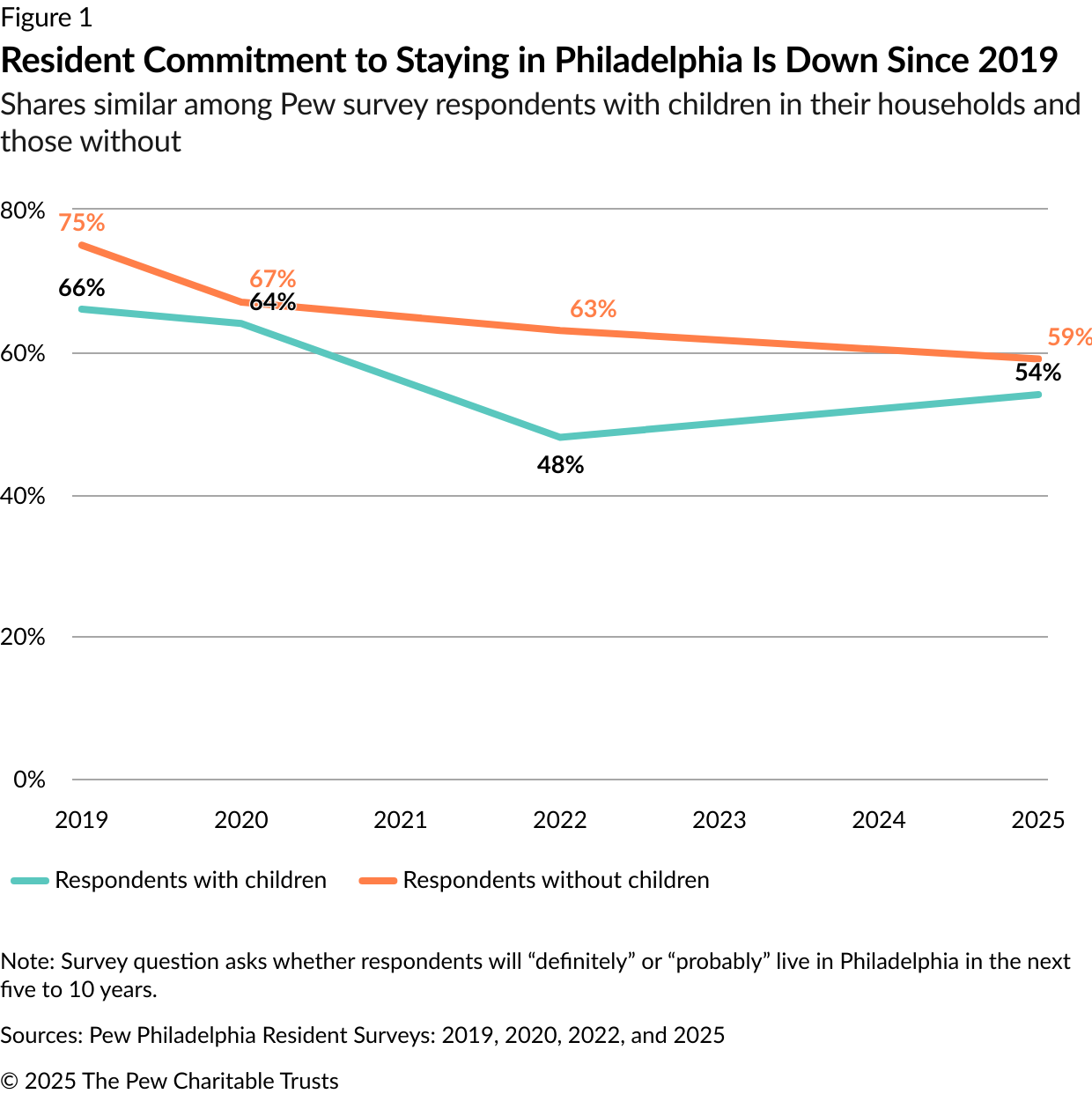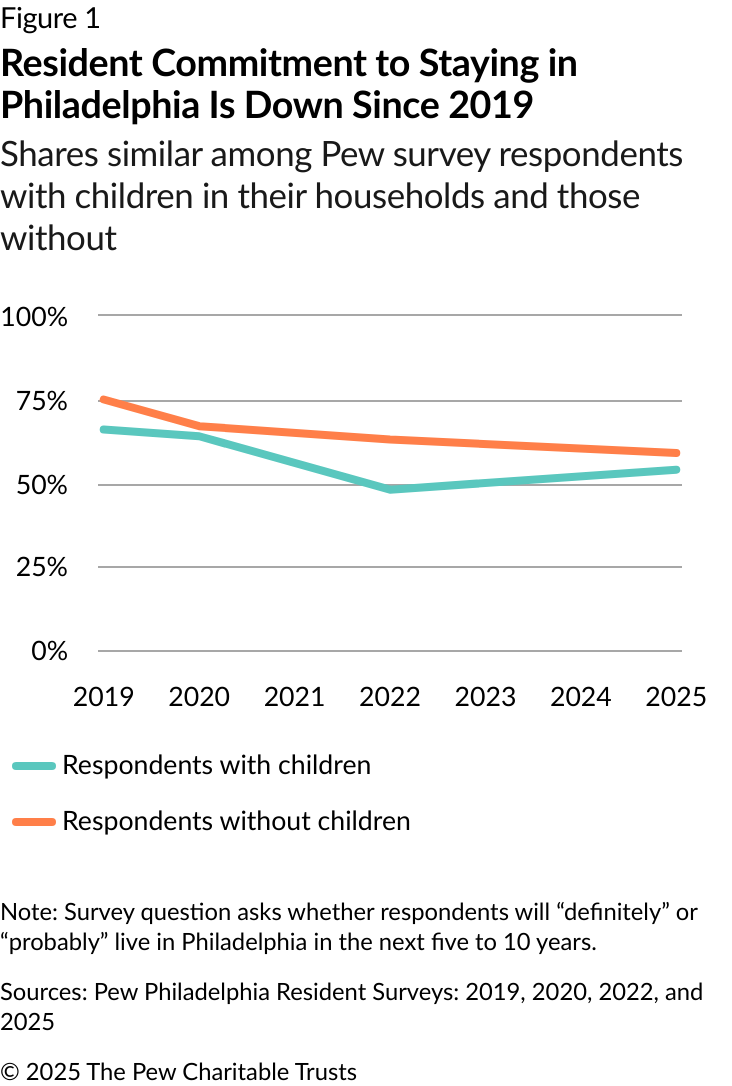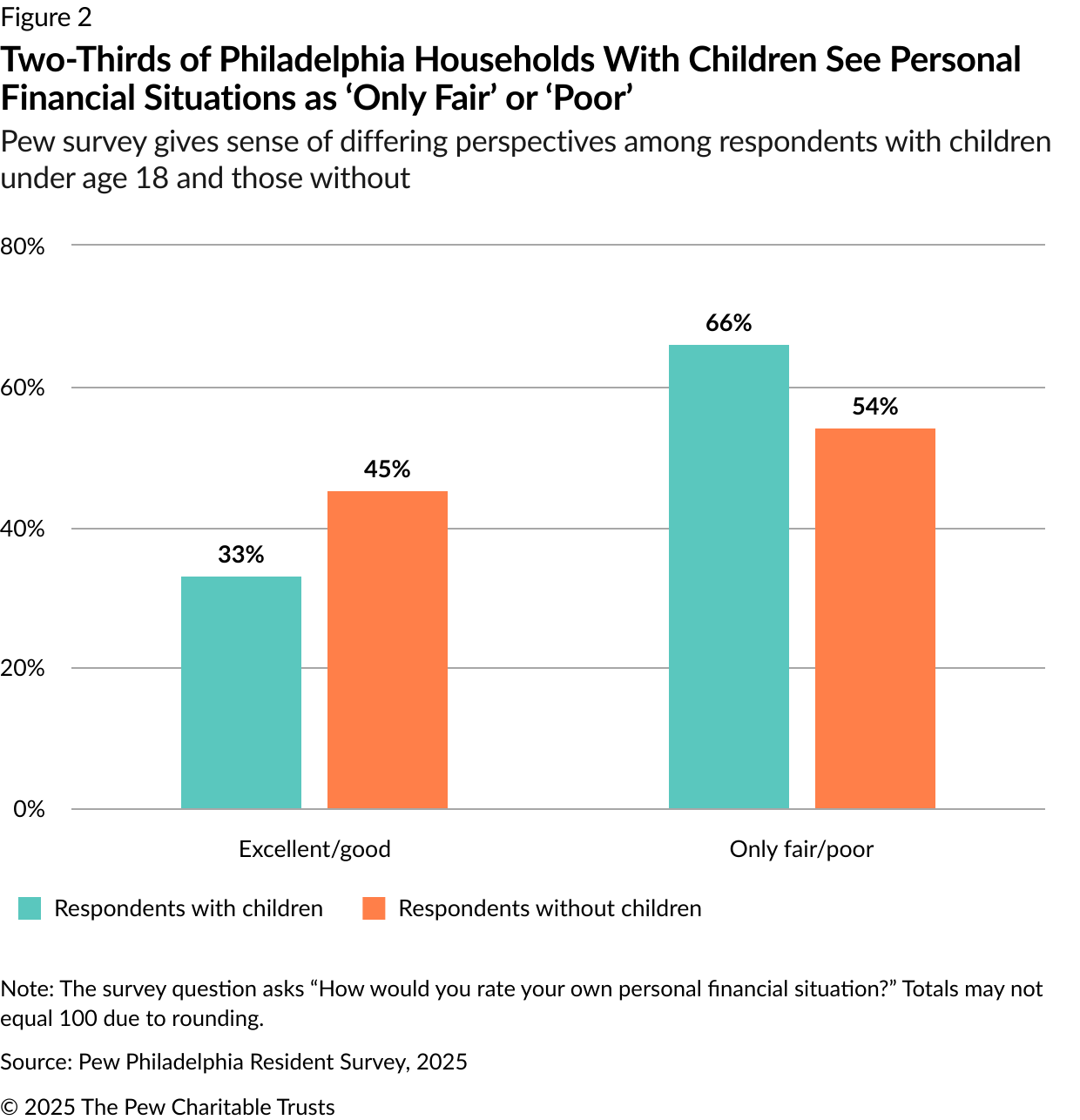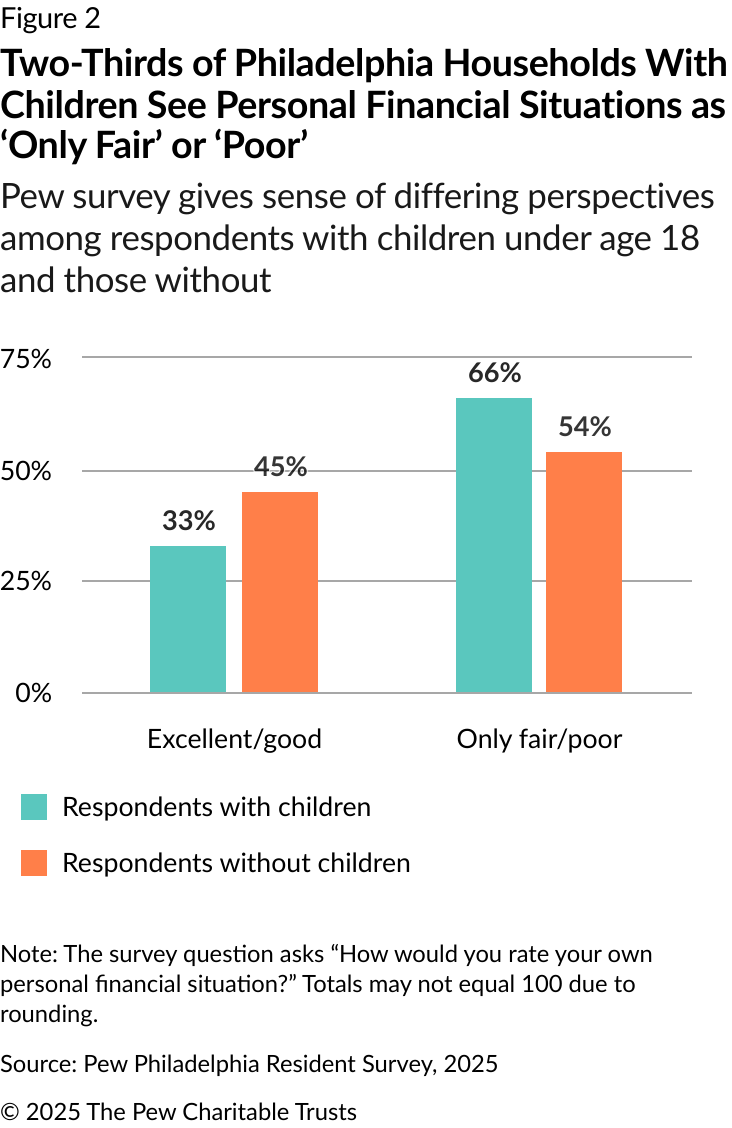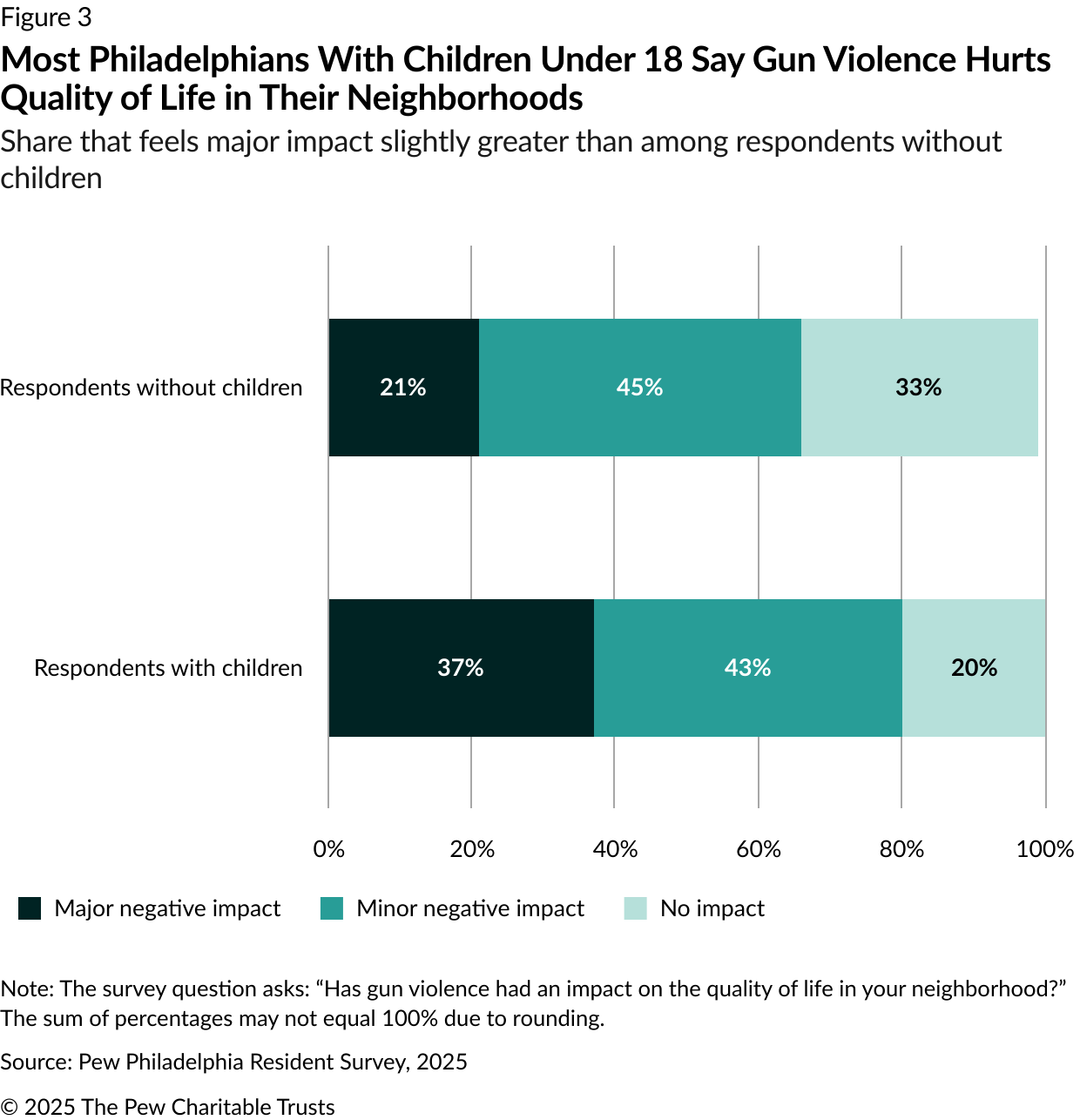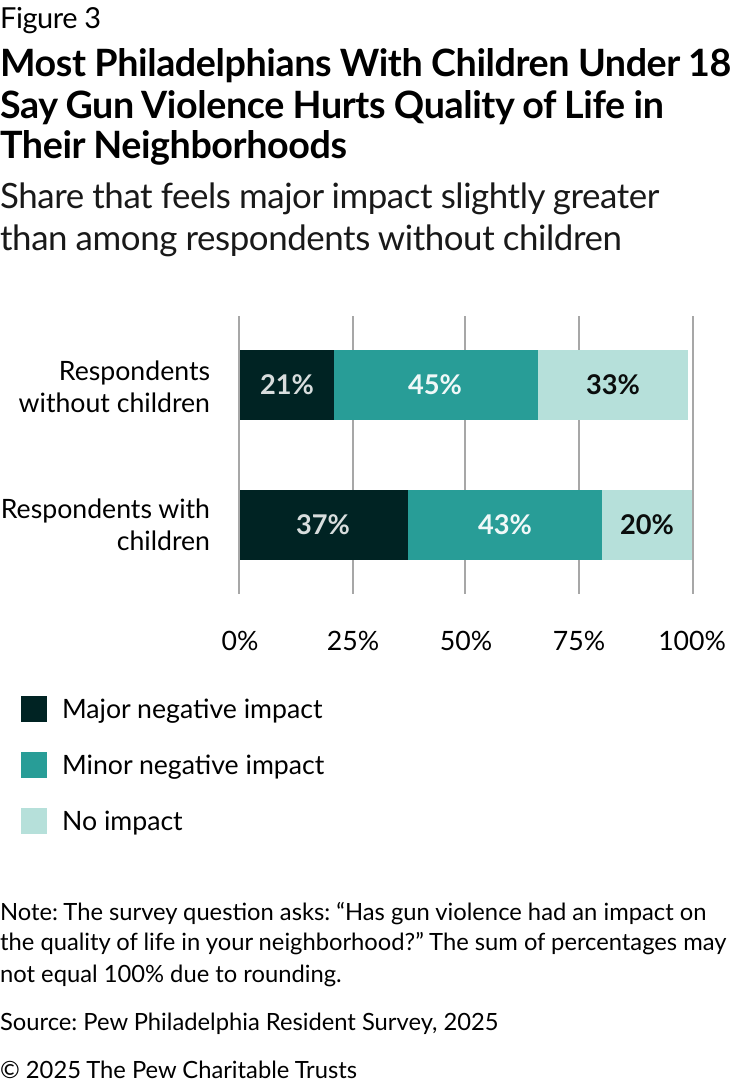Philadelphians With Children Express Concerns About Challenges Facing the City
Survey shows differences in attitudes among respondents with children under 18 and those without
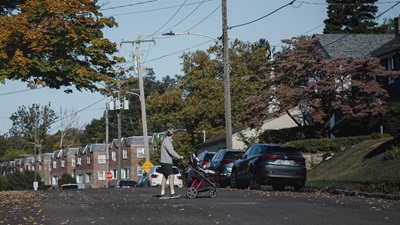
A quarter of Philadelphia’s households include someone under the age of 18, according to the U.S. Census. The views of Philadelphians with children in the home and those without children align on many issues facing the city, but they show notable divergences in key areas, particularly personal finances and public safety, according to the latest Philadelphia survey by The Pew Trusts.
In general, people with children under the age of 18 expressed less optimism about the future of the city and more concern about their own financial situations. And more of them said they felt the impact of gun violence than Philadelphians without children.
The most recent Pew Philadelphia Resident Survey, conducted Jan. 2 to March 10 of this year, covered key issues facing Philadelphians. It included questions about views of the city, public safety, and personal finances. The survey also asked whether respondents had children under age 18 living in their household.
Among survey respondents overall, 31% said they had children in their household, while 69% said they did not. Breaking down the totals among respondents, 60% of women, 69% of employed city residents, and 43% of those with a high school degree or less education said they had children living under their roof. Black, non-Hispanic residents made up 46% of respondents with children, while 36% were White, non-Hispanic. Philadelphians with children were nearly evenly distributed across city neighborhoods—except Center City, which included few households with children.
Philadelphians with children had a less optimistic outlook for the future of the city than those without, even though it was still positive overall. A little more than half (54%) of people with children said they viewed the city as going in the right direction, marginally less than the 61% of respondents without children who felt that way. In addition, 53% of residents with children said the city’s best days are ahead, compared with 61% of residents without children.
For both groups, fewer said that they are likely to live in the city in the next five to 10 years than the percentage that said so in 2019, before the COVID-19 pandemic. (See Figure 1.) Pew has conducted the survey four times since 2019, including that year. In the latest survey, 59% of respondents without children plan to stay, compared with 54% of those with children. That’s down for each group since 2019, but up slightly since 2022 among Philadelphians with children.
When it comes to personal financial conditions and housing, people with children expressed more overall concern regarding their stability than people without children. Just 33% of those with children said they are in “good” or “excellent” financial condition in 2025, compared with 45% of those without children and 41% of all respondents. (See Figure 2.) The number of respondents with children who said their financial condition was “fair” or “poor” increased by 10 percentage points since 2020.
In other aspects of housing, there were slightly more renters among people with children (49%) than among those without (43%). And generally, most households with children expressed satisfaction with their housing (71%), while a smaller portion (29%) said they were “somewhat” or “very dissatisfied” with it. This was true among all demographic groups in the survey of those households with children. Around 39% of households with children said their neighborhood was an “only fair” or “poor” place to live, compared with 30% of households without children.
According to the survey, Philadelphians with children were more likely to report being directly affected by gun violence. In 2025, 61% of residents with children reported hearing gun shots in their neighborhood during the last year, compared to 50% of residents without children. Respondents with children were also more likely to report that gun violence was having a major negative impact on the quality of life in their neighborhood. (See Figure 3.) This view has declined since 2022, when 52% of those with children said gun violence had a major negative impact on their community, compared with 37% of households without children. In 2025, 26% of all Philadelphians said that gun violence had a major impact on their lives.
Similar to their impressions of gun violence, households with children reported that opioid misuse has a negative impact on their neighborhoods (55%) at a higher rate than Philadelphians without children (45%).
Philadelphians with children also expressed greater financial concern than residents without. In the most recent Census data, 25% of Philadelphia’s children live in poverty. People from households with children continue to share higher dissatisfaction with their neighborhoods than those without children on many key public safety and economic security issues.
The 2025 Philadelphia Resident Survey—conducted for Pew by the independent research company SRSS—used address-based sampling, as individuals were originally contacted by mail. The poll focused on multiple issues, including public safety, views of Mayor Cherelle Parker, perceptions of government responsiveness, immigration, and personal finance. SSRS collected data from 2,289 adults—1,776 filled out the questionnaire online, 402 on paper, and 111 over the phone. The margin of error for results involving all respondents is plus-or-minus 2.7 percentage points, and the analysis includes weighted percentages among all valid respondents.
Katie Martin leads the research team for The Pew Charitable Trusts' Philadelphia research and policy initiative.

